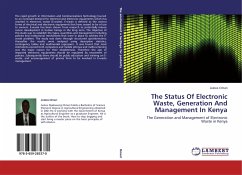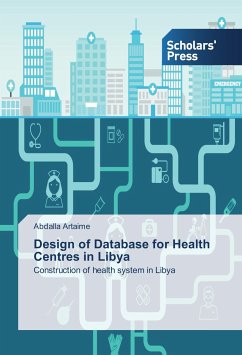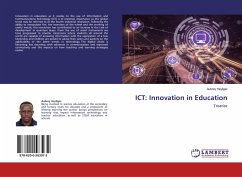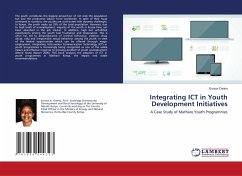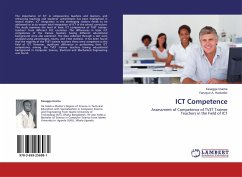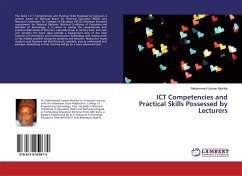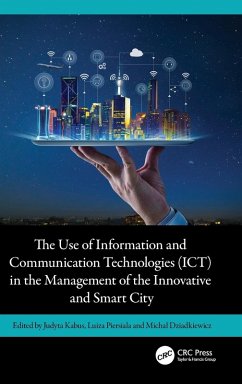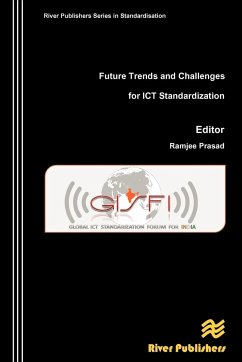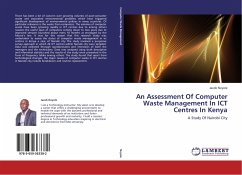
An Assessment Of Computer Waste Management In ICT Centres In Kenya
A Study Of Nairobi City
Versandkostenfrei!
Versandfertig in 6-10 Tagen
37,99 €
inkl. MwSt.

PAYBACK Punkte
19 °P sammeln!
There has been a lot of concern over growing volumes of post-consumer waste and associated environmental problems which have triggered significant development of environmental policies in many countries. Of particular relevance is the waste from computers. The volumes of computer waste have been growing rapidly in ICT centres due to among others reasons the useful span of computers coming down to two years due to improved versions launched about every 18 months as envisaged by the Moore's law. It was for this reason that this research study was undertaken to assess the status of computer waste...
There has been a lot of concern over growing volumes of post-consumer waste and associated environmental problems which have triggered significant development of environmental policies in many countries. Of particular relevance is the waste from computers. The volumes of computer waste have been growing rapidly in ICT centres due to among others reasons the useful span of computers coming down to two years due to improved versions launched about every 18 months as envisaged by the Moore's law. It was for this reason that this research study was undertaken to assess the status of computer waste management in ict centres in Kenya a case of Nairobi city. The study involved a purposive survey approach in which 20 ICT centres within Nairobi city were sampled. Data was collected through questionnaires and interviews of both the managers and the technicians. Data was analyzed using both descriptive and inferential statistics and the results of the study were presented in the form of frequency tables among others. The study found that apart from technological changes, the major causes of computer waste in ICT centres in Nairobi city include breakdown and routine replacement.



